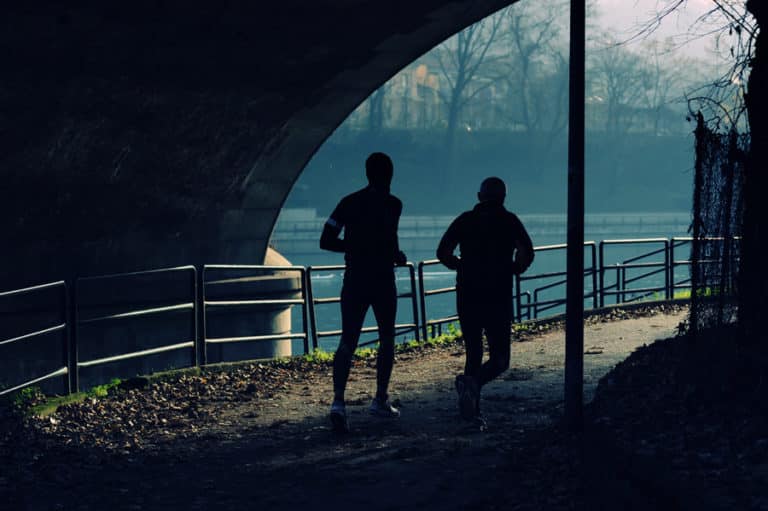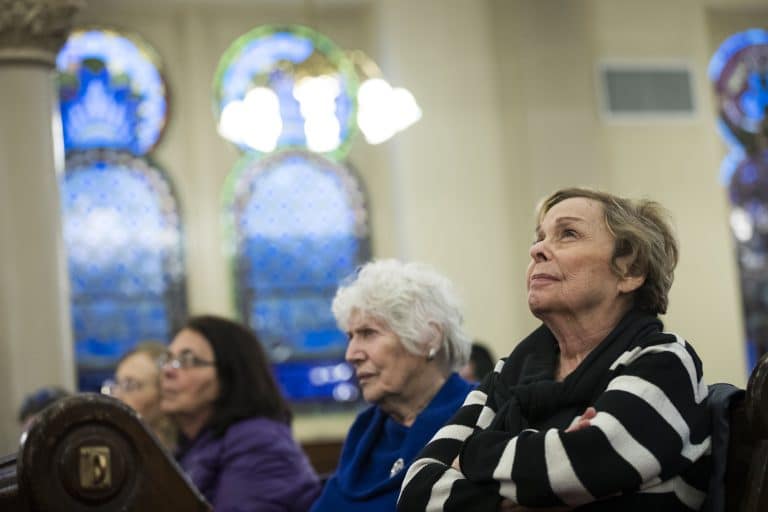
Image by Alessandro Pautasso.
To See One Another Broken
I grew up in a house devoid of religious ritual. Which is not to say, devoid of ritual.
There was the cranberry-colored “you are special today” plate, pulled out only on noteworthy occasions. There were the giddy minutes my brother and I spent combing the cereal aisle of the grocery store on our birthdays, when we were allowed to pick out one “sugar cereal” each. (You can imagine my wide eyes, upon waking in a tangle of blankets and skinny limbs at my first sleepover, when I discovered that other kids had “sugar cereal” year round!) There was the occasional gift under the Christmas tree, which we would discover was actually something we already owned, re-wrapped by my clever mom in order to send a message about valuing what you already have.
In the family I’m creating now — my husband, my 20-month-old daughter, and me — there are, so far, no religious rituals to speak of either. There are rituals around bedtime and waking up and eating. Maya loves to holler “Cheers!” these days while forcefully bouncing her sippy cup off of our water glasses.
She seems to crave ritual rather desperately; I suspect it’s a way of feeling safe in a world where she is learning so much everyday, constantly charged with confronting new phenomena and fitting them into her limited schema or making entirely new ones. Can you imagine? Every new object. Every new word. Every new behavior observed. All of it must be filed away somewhere in her brain. What a relief to have some practice that is comfortingly familiar. She absolutely needs “blankie” — yellow and white checkered, the exact one I had as a baby — to come with us into the bed when we snuggle with “dada” in the mornings. If I don’t grab it, she screams, as if the matter of the blanket is life or death.
I listened to Krista Tippett’s powerful interview with Dr. Rachel Yehuda last week while on a walk through a beautiful cemetery near my house (surprisingly appropriate), and had to hit pause a few times to process the profundity of what they were saying. One of the “pause” moments was when they began talking about the importance of ritual as a kind of container for trauma. Krista said:
“There’s always been this innate wisdom to that. Kind of creating a container where the pain and the trauma is acknowledged, but not allowed to — that it has its place.”
And it got me thinking… I think that those of us who don’t identify with an organized religion are actually fairly good at inventing rituals around joy. Maya’s exuberant toasts, my savored Cocoa Puffs, that shiny plate — it’s all the stuff of celebration to some extent and it feels rather intuitive to integrate into our lives.
When it comes to grief, I think those of us without a religious tradition to lean on are more challenged to invent or integrate ritual. Sadness, disappointment, disease, loss become largely private or intellectualized. Many of us struggle to acknowledge when something traumatic happens in a way that feels like it matches the emotional weight of the experience, or what we imagine it to be. Sometimes we do things that feel inadequate — order flowers, send cards, cook lasagnas, say something well-intentioned — but often feel it’s too formal or too presumptuous, or just say nothing at all because we don’t want to risk it.
We’re dumb about grief, truth be told. I think many of us long for rituals when funerals either aren’t enough or it isn’t death, per se, that we’re dealing with. We long, not just to celebrate when we feel whole, but to see one another when we are broken.
It’s tempting to live a life where you only show up in public once you’ve stitched yourself back together again. It’s so much easier to acknowledge pain once you have a pat story about the meaning that’s been wrought, the silver lining that’s been carefully drawn. But it’s not honest. Rituals are so powerful because they provide structure for the full spectrum of our emotional lives: the births and the deaths, the union and the disintegration. Without them, we live a few octaves short. We do what seems safe and stay quiet and private about our sadness, and instead, our silence can be dangerous to our very selves, our very cells.
My husband and one of his closest friends go on long runs in Redwoods Park near our house together these days and talk about their chaotic, wonderful lives. One afternoon, John came back and there was something different about him. It was like he was moving through the world with more reverence, with more breath and light and less dogged direction. He said, “Today, Peter and I talked about the death of his son.” Peter’s son, Lars, died at just three weeks old. He and his wife have since had another gloriously healthy baby who is almost two, and have another on the way. They’re resilient, courageous people. They’ve experienced the worst of life and continue to make the best.
I don’t know exactly what John and Peter said that day, but I know it made John more fully human. They made a ritual out of their sneakers in the dirt and their eyes straight ahead, sweat and tears — I can only guess — intermixing, the unimaginable spoken and heard, the forward momentum of their legs and their hearts. It must have been a muddy, sacred thing.


Share your reflection